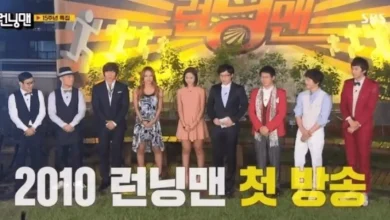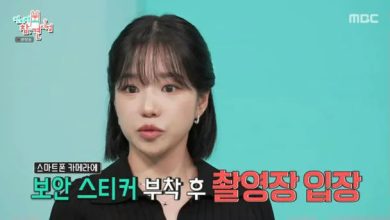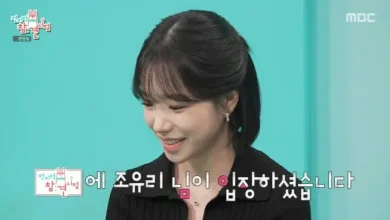Lesbian Dating Show “ToGetHer” Shines Despite Online Hate: Why Korea’s Low Birth Rate Isn’t LGBTQ+ Women’s Fault
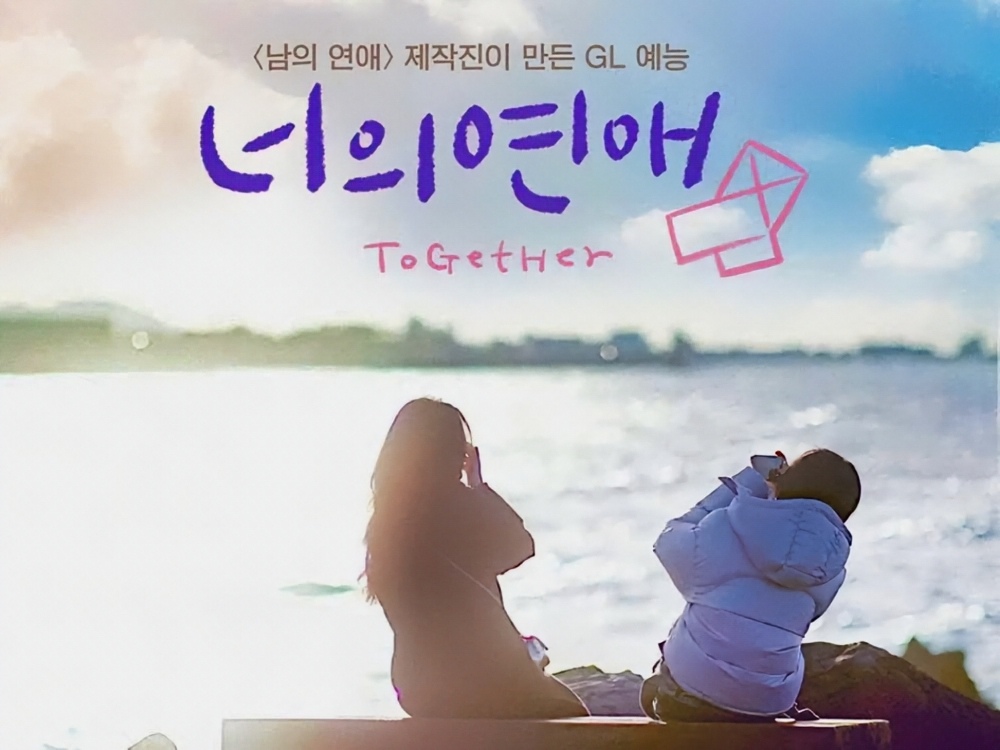
The lesbian dating show “ToGetHer“ has captured attention for all the right reasons, showcasing the beauty of women loving women and for all the wrong ones too, as vicious online attacks flood the comment sections.
While fans celebrated the cast’s visuals and the groundbreaking nature of the program, a dark undercurrent of hate revealed itself.
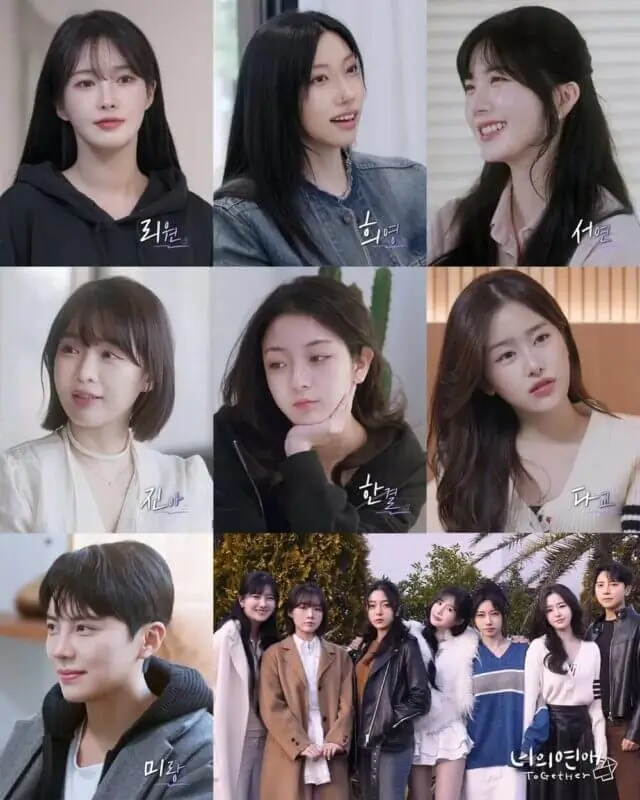
Comments mocking LGBTQ+ people, blaming lesbians for Korea’s declining birth rate, and even comparing them to “dogs” emerged shockingly fast. Some even went as far as to say LGBTQ+ people shouldn’t be treated like human beings, or accused them of harming the nation comments drenched in misogyny, homophobia, and pure ignorance.
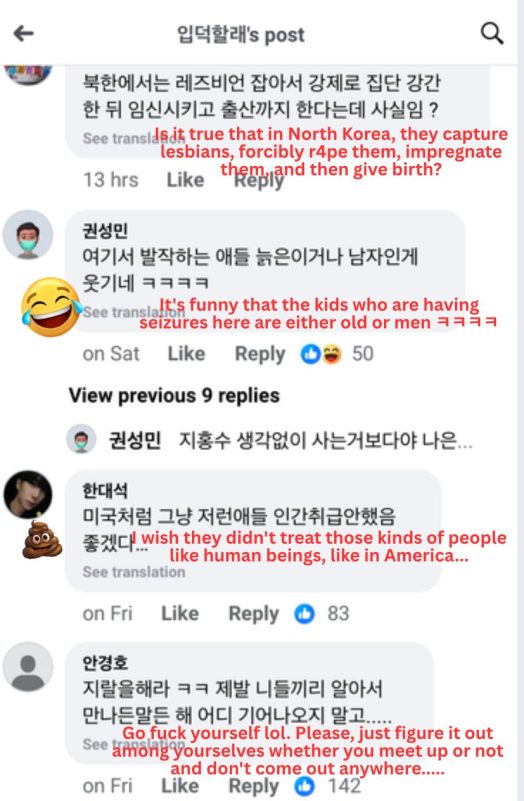
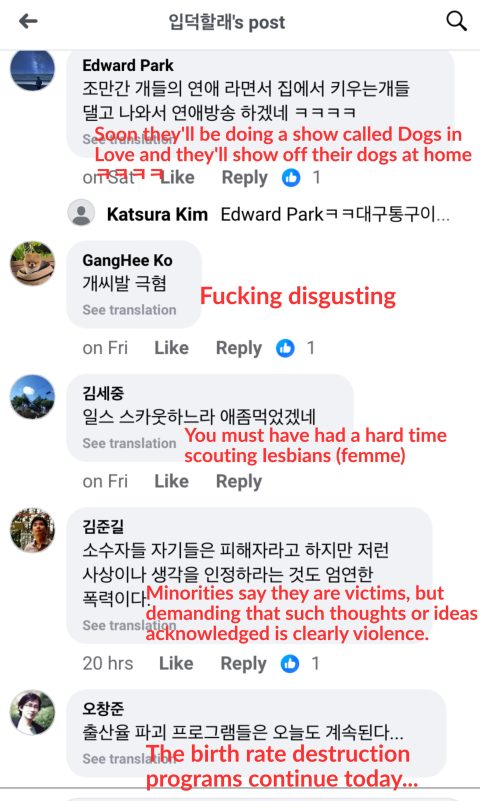
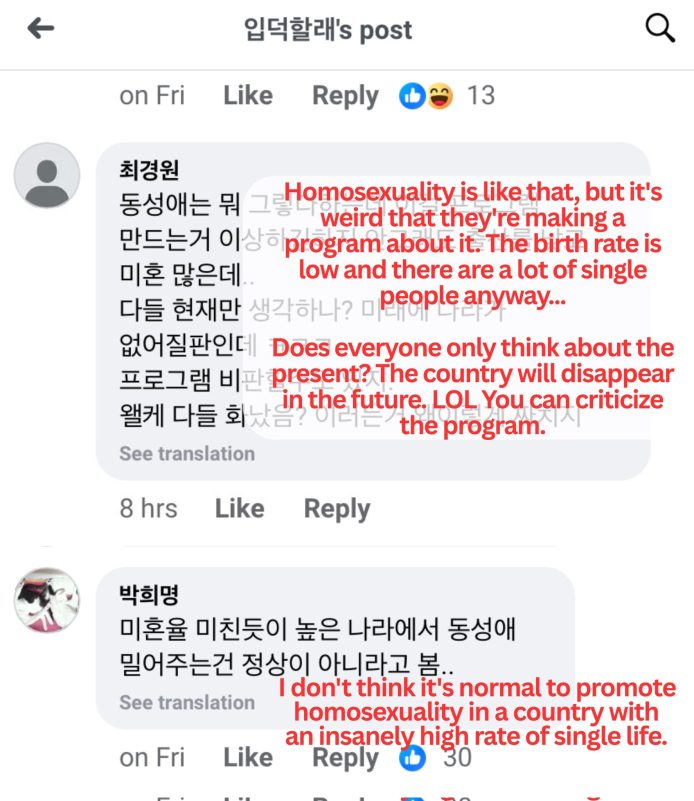
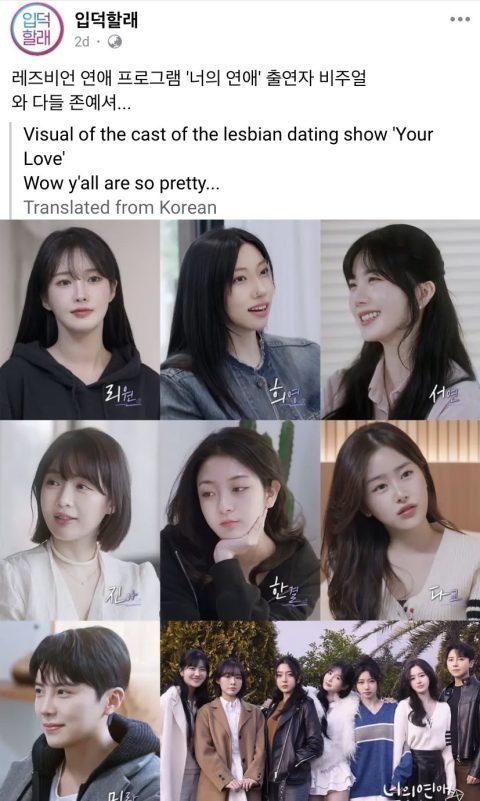
Yet the reality is stark: Korea’s low birth rate crisis is not caused by lesbians.
Rather, it is fueled by deep-rooted issues like rampant misogyny, economic inequality, unaffordable housing, and the real, visible threat women face daily from street harassment to horrifying acts of gender-based violence that make national news regularly. Korean women, whether straight or queer, are choosing safety, dignity, and freedom over living in a system that punishes them simply for existing.
Meanwhile, the very men who blame women for the falling birth rate are often the same ones who espouse anti-feminist rhetoric, trivialize sexual violence, and view gender equality as a personal attack. It’s easier, it seems, for them to scapegoat queer women than to confront the deep societal rot they help perpetuate.
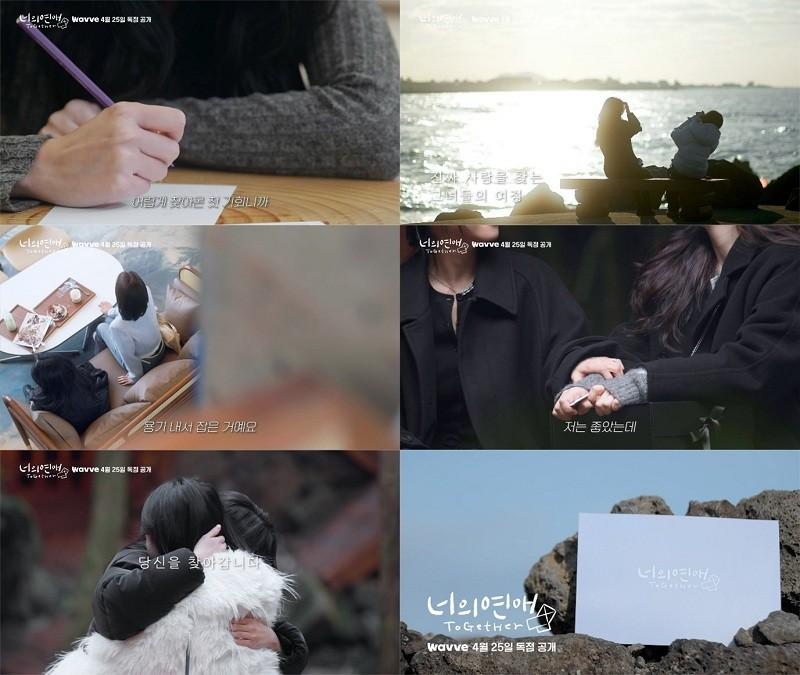
“ToGetHer“ is a refreshing, necessary platform. It allows Korean women — often boxed into traditional roles — to express affection, romance, and identity openly. In a society where conformity still reigns supreme, the show’s existence is a small but crucial rebellion. Love among women is not the enemy of Korean society.
And if Korea truly wants a future where people choose to love, marry, and perhaps even have children, the first step isn’t policing who women love. It’s building a society where women are loved, respected, and safe no matter who they choose.
